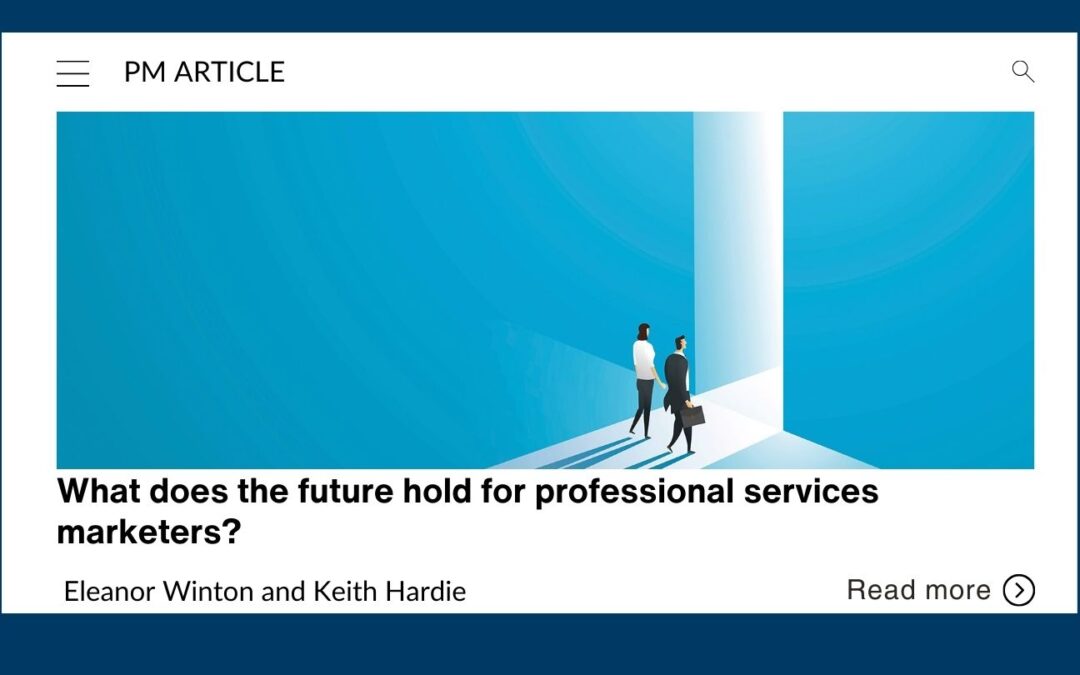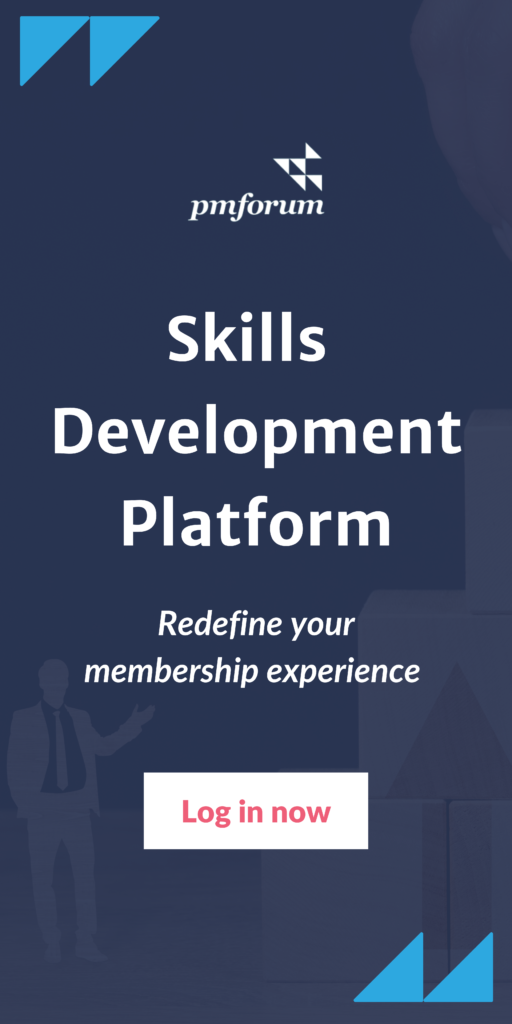An hour talking to Eleanor Winton – strategic foresight and innovation specialist and author of The Disruption Game Plan – is a mind-expanding tour of the major global mega-trends of our time and how they connect in a practical way to professional services strategy. It was also a chance for me, after nearly 20 years in the sector, to rethink the role professional services marketers can play in addressing the most pressing challenges our industries face.
Eleanor, who will open the PM Forum’s annual conference in September, helps leadership teams identify the tools and techniques that will enable them to deal with the volatile, uncertain, complex and ambiguous world we find ourselves in.
Referencing a host of sources, she highlights the geopolitical tensions that require firms to take positions like never before – the environmental crisis that will massively impact every major sector globally and the technological changes that are transforming the way in which services are delivered.
And if that were not enough, she argues firm leaders need to think about social cohesion, diversity, pandemics and the numerous other major factors that could radically change the environments in which they operate. These issues can feel remote to leaders, creating significant blind spots in their thinking on both opportunities and risks.
Pace of change
Precisely because it is so hard to predict how these issues will develop and what the consequences might be, it is tempting for leaders to simply ignore them and plan for the future as though it will be very much like today.
We tend to assume existing business models will continue to drive success and what clients need now will be similar to what they will need in the future. Countless examples show how wrong this can be, but major businesses that employ the brightest minds continue to make this mistake.
It feels safer to not ‘rock the boat’.
Eleanor argues that the increasing pace of change, particularly around the adoption of new technologies, means that firms have less time to consider the latest developments and craft a response once they appear. That can lead to an approach to change which is tactical rather than strategic.
So, rather than just describing what she expects to happen, she provides leaders with the frameworks that help them develop a much broader view of what the future might hold with the aim of shifting their position to one of anticipation rather than response.
She talks about expanding thinking to identify not only narrow ‘projected’, ‘plausible’ and ‘possible’ changes but also ‘preposterous futures’ that leaders may not expect. She advocates considering both the preferable scenarios that might be a firm’s ideal outcome and, importantly, those that might not be favourable to current business model.
By identifying this broad range of scenarios, leaders can better prepare themselves and their firms. They can think about how they would respond to threats and find the opportunities that exist in every potential situation.
However, central to the ability to respond is a clear idea of purpose. What is it that the firm aims to deliver for clients, what makes it special and how does it deliver value in a distinctive way? Without this, it is almost impossible for firms to avoid a defensive approach to changes.
Eleanor points out that partnership structures can make conversations about purpose more difficult. Lots of commentators suggest partnerships encourage consensus rather than radical thinking and make long-term investment more difficult to push through.
Eleanor also highlights the nature of professional advisors and their training as another reason why professional services firms have struggled with these conversations. Accountants, lawyers and other professional advisors tend to focus on their narrow areas of expertise, with what is known as ‘epistemic curiosity’ that encourages them to build a depth of knowledge in a specific area. After all, that is what they are employed for. However, to consider a broader range of future scenarios, we need to employ ‘diversive curiosity’ and ask ourselves ‘what if?’.
It is this ‘diversive curiosity’ marketers can often offer their firms.
The future of marketing and BD
Marketers can offer a much broader and more balanced view of a firm’s strategic priorities than most partners are able to provide. Partners are usually tied to the practices in which they work and inevitably consider how shifts in a firm’s strategy might impact them directly. Marketers are generally less closely tied to a particular area of a firm and are, therefore, more able to think about the overall commercial objectives.
In other industry sectors, marketing has traditionally played the role of the client or customer voice within the organisation. Increasingly, professional services marketing teams are also taking on this role through client listening programmes and client surveys, and new teams of relationship managers for key clients.
With change happening faster than ever, this points towards the increasing importance of marketing within professional services. Whatever the future holds, this means that firms will continue to need the most talented and forward-looking marketers to help them evolve and pivot successfully.
Additional skills we need
But, of course, it also means this is another area in which marketers need to evolve their skills if they are to meet the needs of their firms going forward. That is why I will be paying close attention to Eleanor when she speaks at the PM Forum’s conference in September and signing up for her pre-lunch workshop session.
Rather than just predictions and prophesies that may or may not come true, her plan is to provide a practical toolkit that will enable attendees to think through what the future might hold as well as crafting their own vision of success in that future.
My prediction is that anyone who wants to play a senior role in professional services marketing will need this toolkit. I am also confident that everyone who attends will find the session both fascinating and a lot of fun.
Keith Hardie is Head of International Development at the PM Forum and a hugely experienced marketing and business development leader.



